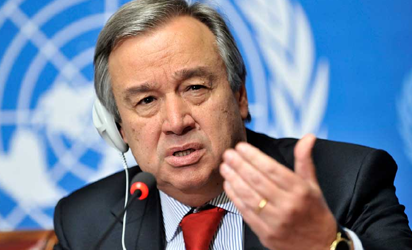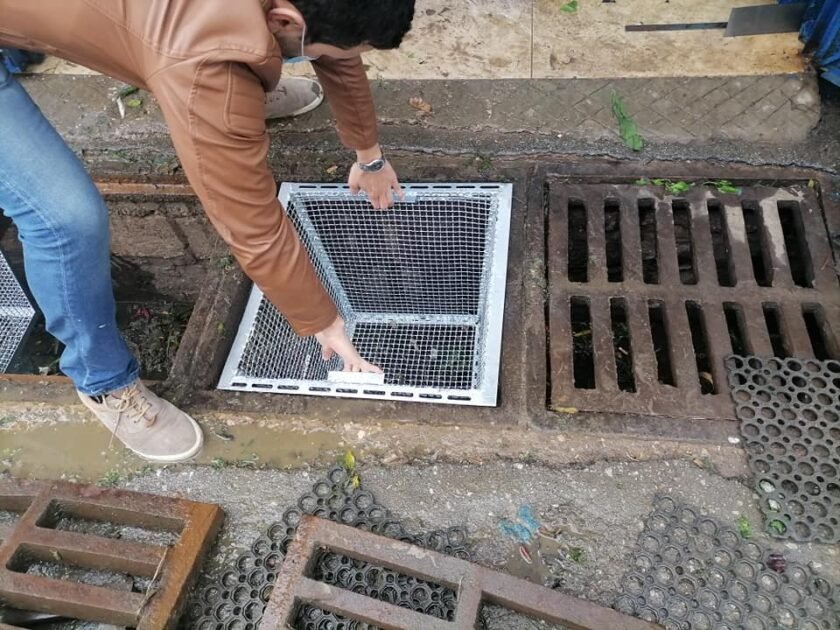UN Secretary-General Antonio Guterres has expressed satisfaction with the anti-money laundering efforts in Nigeria and Tunisia. Guterres, in his remarks to the Security Council on ‘Corruption in Conflicts’, noted that the anti-money laundering efforts in Nigeria and Tunisia had seen funds returned to the treasury.
At its January Summit this year, the African Union launched the observance of 2018 as African Anti-Corruption Year. “I am pleased to note that anti-money laundering efforts in Nigeria and Tunisia have seen funds returned,” the UN chief said. Newsmen report that the AU has declared 2018 as an anti-corruption year with the theme: ‘Winning the Fight Against Corruption: A Sustainable Path to Africa’s Transformation’.
Newsmen also report that the African Heads of State entrusted Nigeria’s President Muhammadu Buhari with the responsibility of serving as the ‘Champion of the Theme of the Year’.
The UN chief said corruption was present in all countries, rich and poor, North and South, developed and developing, adding that numbers show the startling scope of the challenge.
The World Economic Forum estimates that the cost of corruption is at least $2.6 trillion while according to the World Bank, businesses and individuals pay more than $1 trillion in bribes each year. Guterres said: “Corruption robs schools, hospitals and others of vitally needed funds. It rots institutions, as public officials enrich themselves or turn a blind eye to criminality. “It deprives people of their rights, drives away foreign investment and despoils the environment. Corruption breeds disillusion with government and governance – and is often at the root of political dysfunction and societal disunity. “The poor and vulnerable suffer disproportionately. And impunity compounds the problem.
Corruption can be a trigger for conflict, as conflict rages, corruption prospers. And even if conflict ebbs, corruption can impede recovery. “Corruption drives and thrives on the breakdown of political and social institutions. These institutions are never more in crisis than in times of conflict. “Corruption is linked to many forms of instability and violence, such as the illicit trafficking in arms, drugs and people”.
He noted the connections between corruption, terrorism and violent extremism, adding that assets stolen through corruption can be used to finance further crimes, including violent extremist and terrorist acts.
According to him, large-scale corruption surveys conducted by the United Nations Office on Drugs and Crime found that bribery of public officials was particularly high in areas affected by conflict.
Guterres charged governments to enhance anti-corruption efforts by ensuring independent judiciaries, a vibrant civil society, freedom of the media and effective whistle-blower protections.
He said that the international community can complement those efforts by working more effectively against money laundering, tax evasion and the illicit financial flows that have deprived countries of much-needed resources and that further feed corruption. “We must all do more to fight corruption, strengthen governance and build trustworthy institutions that can ensure probity and progress for all,” the UN chief stressed.
TunisianMonitorOnline (Vanguard)




